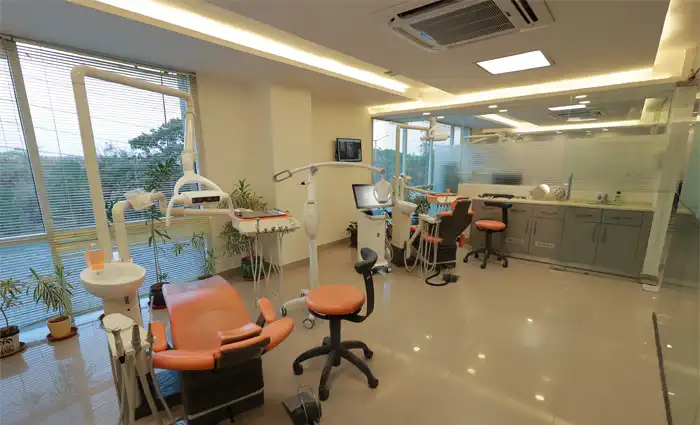Microscope Root Canal Therapy (RCT)
The dental microscope offers clear and precise vision during dental procedures, utilizing advanced imaging technology. Its ergonomic design and built-in LED illumination enhance comfort for the practitioner and improve visualization of anatomical details
Enhanced Precision with Endodontic Microscopes
An endodontic microscope significantly increases the success rate of root canal treatment by providing high magnification and illumination. This advanced technology allows dentists to visualize intricate details of the root canal system, including hidden canals, anatomical variations, and calcifications, which may be missed with the naked eye. The result is a more thorough cleaning and filling of the canals, ultimately improving treatment outcomes.
Key Benefits of Using an Endodontic Microscope
Enhanced Visualization
Allows clear identification of small canals, root canal orifices, and other minute anatomical features, ensuring precise instrumentation and cleaning.
Detection of Hidden Canals
Reveals additional or curved canals that may not be visible with traditional methods, leading to more complete treatment.
Improved Accuracy in Complex Cases
Magnification helps manage challenging cases like curved canals, calcified canals, or teeth with unusual anatomy.
Reduced Risk of Errors
Better visibility minimizes the risk of overlooking details or causing procedural errors such as perforations.
Better Removal of Debris
Ensures thorough cleaning of the root canal system, completely removing infected tissue and debris.
Improved Patient Comfort
Precise manipulation with the microscope minimizes trauma to surrounding tissues, leading to a more comfortable treatment experience.
Importance of Microscope-Assisted Root Canal Therapy (RCT)
When the soft tissue inside your root canal (the dental pulp) becomes inflamed or infected, root canal treatment is necessary. Using dental microscopes, endodontists can perform root canal treatments with minimally invasive techniques. With enhanced visualization, they can remove infection or damaged tissue in a conservative manner, preserving as much of the healthy tooth as possible. This results in:
- Less discomfort during the procedure
- A quicker recovery time
- An improved overall patient experience
Common Reasons for Root Canal Therapy
- Deep decay
- Repeated dental interventions on the tooth
- Faulty crown
- Crack or chip in the tooth
Training and Expertise in Microscope-Assisted Root Canal Therapy
During a microscope-assisted root canal procedure, an endodontist uses a specialized dental operating microscope for expert visualization and magnification of the tooth’s root canals. The procedure typically involves:
Diagnosis
The extent of infection or damage is determined using microscope findings and digital imaging.
Accessing the Tooth
The endodontist creates an opening in the tooth's crown to access the root canals.
Cleaning and Shaping
Diseased tissue and debris are removed using precise instruments, and the canals are shaped into narrow channels.
Filling and Sealing
The cleaned canals are filled with a biocompatible substance to prevent future infections before sealing the opening.
Follow-up Care
Patients may receive a temporary filling and will be advised to schedule a follow-up appointment for final restoration.
Experience the Best in Endodontic Care with Dr. Motiwala
Dr. Motiwala offers the latest advancements in endodontic procedures with microscopic Root Canal Therapy (RCT). This innovative treatment combines cutting-edge technology with expert precision, ensuring the best possible results. If you require a root canal, microscope-assisted RCT is a superior option that can significantly enhance your dental well-being.




